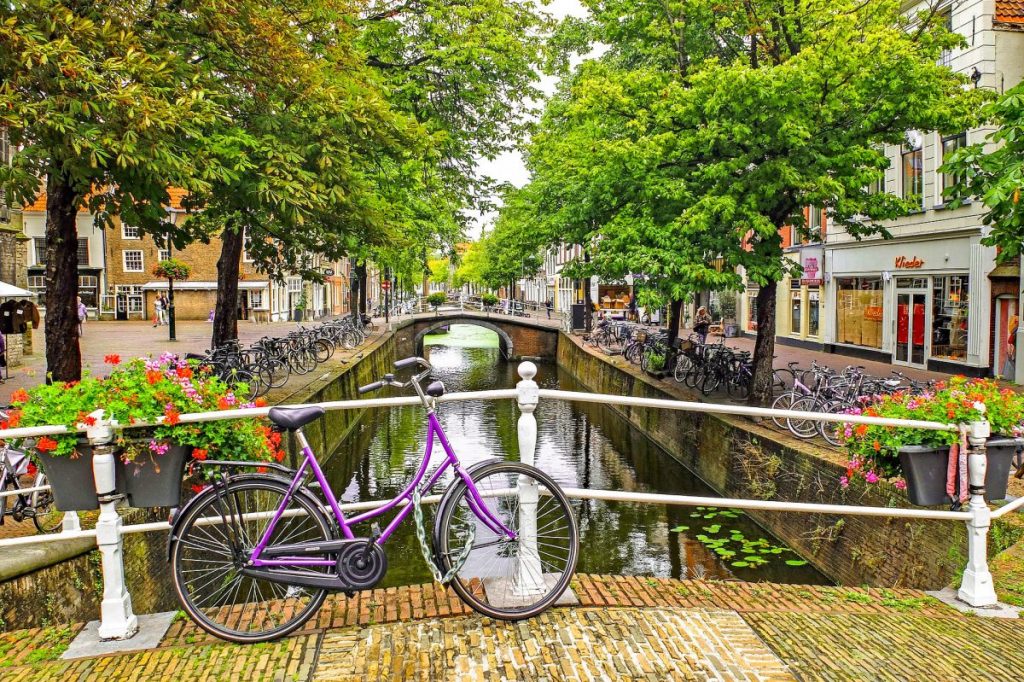Destinations where you need to pay a tourist tax

Sometimes referred to as a “city tax”, the tourist tax is the imposition of a fee per person per night of stay, typically charged during the check-out process at your chosen accommodation. As the trend keeps consistently growing, here is a list of destinations where you need to pay a tourist tax!
As global travel continues to increase, a growing number of destinations worldwide have embraced the concept of tourist taxes to address the challenges of overtourism and provide public institutions with further financing. As such, local governments have been implementing these fees with the aim of maintaining a balance between economic benefits and environmental, cultural and social preservation. The revenues generated through these taxes are often channeled towards initiatives that safeguard the environment, protect cultural heritage and support various social projects within the community.
Costs of tourist taxes

The rates of tourist taxes can vary significantly based on factors such as the type and location of the accommodation you choose: generally, the higher the rating of the accommodation, the higher the corresponding tourist tax. When comparing different regions within the European Union, for example, Eastern European countries tend to have lower rates compared to their Western and South-eastern counterparts. It’s also important to note that the specific amount of the tourist tax is determined by the individual city or municipality and may undergo annual adjustments.
To stay informed about the applicable rates for your destination, you can find comprehensive information detailing tourist tax rates for each country.
Who is Subject to Tourist Taxes?
Tourist taxes are applicable to virtually all travelers, though some exceptions are made based on specific circumstances and city regulations. Common categories of exemptions include:
- Children: Children often benefit from reduced rates or complete exemption from tourist taxes.
- People with Disabilities: Individuals with disabilities, accompanied by one person, may be eligible for exemption from tourist taxes.
- Patients and Caregivers: Those receiving medical treatment and their caregivers can sometimes be exempted from the tax.
- City Workers: Individuals working within the city where the tourist tax is levied might be exempt from paying.
- Transportation Staff: Bus drivers and tour guides may also enjoy exemptions, as a recognition of their roles in facilitating tourism.
Destinations that charge tourist taxes

Austria
Austria imposes an overnight accommodation tax that varies by province. In Vienna or Salzburg, guests incur an additional 3,02% of their hotel bill per person. Known as “Tourismusgesetz” and “Berherbergungsbeiträge”, this tax contributes to local tourism initiatives.
Belgium
Belgium’s tourist tax applies to room nights, as the fee can be included in the room rate or charged separately. Cities like Antwerp, Bruges and Brussels have distinct rates, which usually start at around 0,40€ but can stretch to a significant sum of 7,50€ per night.
Bhutan
To preserve their unique way of life and minimize foreign influences, the Bhutanese authorities have made visiting the country an expensive affair, requiring travelers to be accompanied by a government-accredited guide. While prices may vary depending on the chosen itinerary and quality of the accommodations, the government has set what they call the “Minimum Daily Package”, stating that travelers must pay a minimum of 100 USD per day. While it’s true that this amount covers transportation, meals, cultural activities and accommodation, it’s still undeniably on the higher side. Besides, this is just the minimum cap, so it’s fairly common to come across even pricier tour options!
Bulgaria

Bulgaria levies a low tourist fee on overnight stays, typically up to around 3 Lev, varying by region and hotel classification.
Croatia
Much like the other destinations, tourist taxes in Croatia will depend on the city and the time of the year. Taking uber-popular Dubrovnik as benchmark, the tourist tax stands as 2,65€ per night during summer, dropping down to 1,86€ throughout the rest of the year.
Czechia
Prague is the only Czech city charging a small tourist fee (50 CZK) per person, per night, for up to 60 nights.
France

France imposes what they call a “taxe de séjour” that varies by city, ranging from 0,50€ to around 4,30€ per person, per night. Furthermore, additional taxes can also be levied by the different counties and regions. Taking a hard look at Paris, the Île-de-France region recently introduced an additional tax of 15%.
Germany
Germany has both a “culture tax” and a “bed tax” in cities like Frankfurt, Hamburg and Berlin, amounting to around 5% of the hotel bill.
Greece
Introduced by the Ministry of Tourism to help fund the payment of the country’s massive external debt, Greece’s tourist tax can reach up to 4,00€ per room, depending on the number of rooms rented and the class (stars) of the hotel.
Hungary

Hungary’s tourist fees can only be found in Budapest, adding an extra 4% to the nightly room price.
Indonesia
Starting in 2024, Bali will charge a special tourist tax of around 150.000 Rps to every traveler arriving on the island. According to local authorities, the tax money will contribute to the preservation of the environment and of Balinese culture.
Italy
Italy’s tourist taxes vary by location, with Rome charging 3,00€ to 7,00€ per night. As of now, the ever-popular Venice is also strongly considering charging a new tax to every single visitor entering the city.
Japan

Although there are no special taxes levied on accommodation, Japan implemented a departure tax of 1000 yen to support the economy.
Malaysia
Malaysia applies a flat-rate tourist tax per night of 10 RM. This fee applies to any tourist staying at any accommodation premises within Malaysia, and is directly collected by the hotel.
New Zealand
Upon arrival in the country, and aside from the NZeTA, all tourists (except Australians) are required to pay an International Visitor Conservation and Tourism Levy (IVL). This license costs 35$ NZD and helps fund conservation efforts and mitigate the tourist footprint.
The Netherlands

So that the famous local houseboats aren’t exempt from the fees, the Netherlands imposes both land and water tourist taxes, with Amsterdam’s toeristenbelasting accounting for 7% of the hotel room cost + 3,00€ per person, per night. Other Dutch cities opted for just the 3,00€ flat-fee.
Portugal
Portugal charges around 2,00€ per night for guests aged 13 and over in 13 municipalities, including Porto, Lisbon and Faro. These fees are only applicable for the first seven days of stay.
Slovenia
Slovenia’s tourist tax varies by location, standing at around 3,00€ in the most popular cities and resort towns, such as Ljubljana and Bled.
Spain

As a Federation, Spain’s tourist taxes are decided by each local government, differing greatly according to the region. In the Balearic Islands, for example, a Sustainable Tourist Tax is charged, which can be up to 4,00€ per night, while Barcelona has long required visitors to pay both a regional tourist tax and an additional city-wide surcharge. In fact, the Catalonian capital is now set to implement a phased increase in its tourist tax over the next couple of years. On April 1st, the municipal fee rose to 2,75€ per night, with a subsequent increase currently scheduled for April 1st, 2024, pushing the fee further to 3,25€ per night.
Finally, it’s also worth mentioning that Valencia is set to implement a tourist tax for all types of accommodation by the end of 2023 or early 2024. Ranging from 0,50€ cents to 2,00€ per night, depending on the accommodation type, visitors can be charged for up to seven nights. According to the legislation, the proceeds are intended to foster sustainable development in the region’s tourism sector and provide more affordable housing for locals in tourism hotspots.
Switzerland
Switzerland’s tourist tax only applies to stays under 40 days and can range between 3 and 7 CHF, depending on location. Also, keep in mind taxes aren’t usually included in the final price when booking, so accommodate that on your budget to avoid any unpleasant surprises.
The UK
Currently, Manchester is the first and only city in all of the UK to levy a tourist tax. For now, rates are actually quite tame when compared to other European destinations, as the British city charges 1£ to visitors staying in the city-center.
USA

Finally, we cap off our list with the United States, where hotel/lodging taxes apply to accommodations such as hotels, motels, and inns. The rate varies by location, with some cities like Houston charging as much as 17% on the hotel bill, the highest in the nation.
Traveling soon? Get your Holafly eSIM for seamless internet access in any destination. No more worrying about roaming charges or finding local SIM cards. Enjoy unlimited data and stay connected with ease. Order your Holafly eSIM now »
Heymondo offers a wide range of travel assistance insurance policies. They combine the best quality, service and price with various levels of coverage, so you’re covered on your weekend getaways and long trips. Buy insurance »







